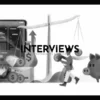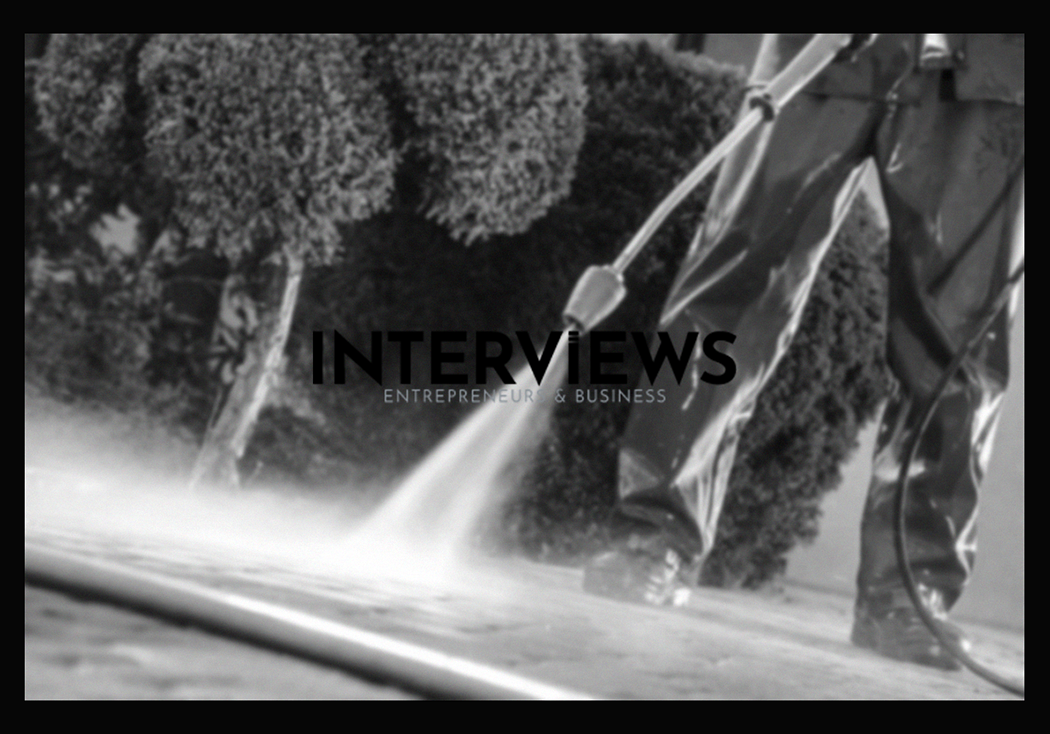The Ultimate Guide to Pressure Washing: Costs, Techniques, and Business Insights
Want to pressure wash your house, driveway, or start a pressure washing business? You’re in the right spot. Pressure washing is more than just spraying dirt. There’s a lot to know. Let’s explore pressure washing in detail. It can be done correctly, and possibly earn you some money.
The Cold Hard Cash: Understanding Pressure Washing Costs
Let’s talk money. How much will this cost you? Whether hiring someone or pricing your services, understanding costs is critical. You wouldn’t enter a car dealership without knowing your budget. The same applies to pressure washing.
Hourly vs. Square Footage Rates: Decoding the Price Tags
Pressure washing experts charge in two ways: hourly or by square footage. Hourly rates are typically between $60 to $100. Hiring them is like hiring a consultant, but with high-pressure water. For larger areas, square footage pricing is common. Expect $600 to $1,600 for 2,000 square feet.
House Size Matters: Big House, Bigger Bill?
Size matters in pressure washing. A 1,200-square-foot home may take six hours to wash, costing about $360 to $600. The national average for a house is around $310, with homeowners paying between $212 to $447. Variations depend on many factors. Cleaning a dusty car differs from one covered in mud.
What Drives Up the Dough? Factors Affecting Cost
Many factors can increase pressure washing costs. Think of them as “upgrade packages.” Stubborn stains and mold will be more expensive. Some pros charge $0.40 to $0.80 per square foot for hard tasks. Extra toppings on pizza cost more, too, right? The surface condition and required pressure change the final bill.
Pricing Like a Pro: Strategies for Your Own Business
Are you starting your own pressure washing business? Good idea! How do you price your services for profit? Here’s the plan:
- Determine Square Footage: Get your measuring tape. Calculate the area you’ll clean. Accurate measurements are crucial, like a contractor estimating materials.
- Calculate Overhead and Materials Costs: It’s not just water and a machine. Include travel costs, cleaning solutions, equipment maintenance, and insurance.
- Estimate Total Job Cost: Based on footage and job time, figure your base cost. Consider complexity – a driveway is simpler than a multi-story building.
- Add Profit Markup: This is crucial. You’re in business to profit, not break even. Set a reasonable markup for your desired income. Your expertise is valuable.
- Consider Special Factors: Are there tricky stains? Is it urgent? Delicate surfaces need care? These factors justify higher prices.
Pressure Washing vs. Power Washing: It’s Not Just Semantics
Have you heard “pressure washing” and “power washing” used interchangeably? They are not the same. The key difference is water temperature. Power washing uses heated water, while pressure washing often uses cold or warm water.
Power Washing: The Hotshot Cleaner
Power washing uses high-pressure heated water. It fights tough stains and grease effectively. Cleaning a greasy pan with cold water is hard, but hot water makes it easier. Use power washing for heavy-duty tasks like concrete driveways or brick walls.
Pressure Washing: The Cool and Collected Approach
Pressure washing uses a high-pressure stream of cold or warm water. It’s powerful yet better for general cleaning tasks on delicate surfaces like decks and patios. It’s useful for unclogging drains too. Pressure washing is more versatile without being excessive.
Show Me the Money! Pressure Washer Salaries and Business Dynamics
Let’s discuss earning potential. Is pressure washing just a side gig, or can it lead to success? Here’s a breakdown.
Hourly Pay and Annual Salary: What to Expect in Your Paycheck
As of March 2025, average hourly pay in the US is about $18.74. This isn’t enough for luxury, but it’s decent. Annually, that’s around $38,459 in California and $38,167 in Minnesota. Hard work pays fairly, and being your own boss is priceless.
Building a Pressure Washing Empire: From Zero to $100K
Growing a successful pressure washing business takes time. Most residential companies build to $100K+ annually after 2-3 years. Hitting $1,000 per day can happen faster with hard work. Consistent effort and quality service are key.
The Business Blueprint: Licenses, Permits, and Paperwork – Oh My!
Ready to start your pressure washing business? Hold on. You need licenses, permits, insurance, and registration. You need a business operating license from your city or county and a sales tax ID for taxes.
Profitability Unveiled: Turning Water into Wealth?
Can pressure washing lead to wealth? A typical pressure washing company has a net income ratio between 5.6% and 8.4%. Not huge profits. Yet, some operators achieve margins between 20% and 30%. Efficiency and smart pricing boost earnings.
LLC: Your Business Shield – Limited Liability Company
Consider forming a Limited Liability Company (LLC). This protects your personal assets from business liabilities. If problems arise, your money is safe. However, it’s not foolproof. An LLC provides limited protection. Do your research before deciding.
Gearing Up: Pressure Washing Equipment Essentials
You can’t pressure wash without equipment, right? Let’s look at essential tools. We’ll cover brands, types, and costs needed for starting the cleaning process.
Brand Power: Top Pressure Washer Contenders
Pressure washers have many well-known brands. Sparkle Wash leads globally. They have over 88 units across countries. Some top picks include:
- Best Overall: Simpson Cleaning PS3228 PowerShot – Versatile and reliable.
- Best Mobility: Craftsman CMEPW2100 Pressure Washer – Easy to handle.
- Most Powerful Electric: DeWalt DWPW3000 3000-PSI Compact Pressure Washer – Powerful electric option.
- Best Value: Sun Joe SPX 3000XTI Xtream Pressure Washer – Affordable and efficient.
- Top Pick (General): Ryobi 1900 PSI Corded Electric Pressure Washer – Great for most jobs.
These brands are like car brands. Each has unique strengths.
Types and Costs: Electric vs. Gas, Light Duty vs. Heavy Duty
Pressure washers are either electric or gas. You can find a light-duty electric pressure washer for around $100 (before tax). For more power, gas engine models start at $300. The average pressure washer costs about $246. Gas models average around $379, while electric ones are about $167. It’s like the choice between a bicycle and a motorcycle. Electric is cheaper and easier; gas packs more power.
PSI Power: How Much Pressure is Enough?
PSI (Pounds per Square Inch) measures pressure in pressure washers. For most home use, a pressure washer with 1300 to 2400 PSI is sufficient. Think of PSI as pressure washer horsepower; higher PSI means more cleaning power. Gas models generally offer greater power. Electric models are quieter, simpler to use, and eco-friendly, but less powerful. It’s a trade-off between power and convenience.
Rent or Buy? The Equipment Dilemma
If buying a pressure washer seems too much, consider renting. Renting averages about $90 per day, with prices from $50 to $250 based on machine type and rental duration. Renting works for occasional use or trying out different pressure washers before committing to a purchase, similar to test-driving a car.
Pressure Washing Services: Beyond the Blast
Pressure washing is not just blasting dirt away. Different techniques exist; for instance, soft washing is gentler for delicate surfaces.
Soft Washing: The Gentle Cleaning Revolution
Soft washing provides a gentle exterior cleaning method. It cleans surfaces using low-pressure water and a cleaning solution. This method effectively removes organic matter such as mold, mildew, and algae without harming fragile surfaces. Unlike traditional pressure washing, soft washing uses significantly lower pressure, making it safe for roofs, siding, and delicate materials. It’s considered more environmentally responsible and provides longer-lasting results.
Surface Savvy: Where Soft Washing Shines
Soft washing is best for surfaces that high pressure can damage. This includes roofs, siding, decks, patios, fences, and other exterior surfaces. It’s ideal for materials needing gentleness. Cleaning delicate antique furniture requires soft approaches; so does soft washing for exterior surfaces.
Pricing Pressure Washing Services: A Menu of Options
A variety of services leads to different pricing. Here’s typical pricing for common pressure washing jobs:
- Driveway or walkway: $0.20 to $0.40 per square foot.
- Gutter: $50 to $300 per linear foot.
- Roof cleaning: $0.50 to $1 per square foot.
- Fence: $150 to $300.
- Deck or patio: $250 to $400.
- Siding: $150 to $400.
- Single-story home: $150 to $750.
- Two-story home: $400 to $1,400.
These are general figures that can vary by location, condition, and complexity of the job. It acts like a menu of services where customers pick what they need.
Time is of the Essence: Pressure Washing Time Estimates
Time impacts both you and your clients. Knowing job duration helps with scheduling and pricing. Let’s check typical time estimates for pressure washing.
Square Footage to Time: The General Rule of Thumb
A standard driveway or small to medium-sized house of 1,000 square feet usually takes about 1 to 2 hours, depending on dirt level. Consider this a rough estimate – like estimating travel time without traffic.
General Time Estimates by Size: Planning Your Schedule
A more detailed time estimate breakdown includes:
- 1,000 sq ft: 2-3 hours
- 1,500 sq ft: 3-4 hours
- 2,750 sq ft: 5-6 hours
- 4,000 sq ft: 7-8 hours
- 5,000 sq ft: 9-10 hours
These estimates help plan your work but remember, heavily soiled surfaces or intricate designs will extend time. Overestimating slightly is wise to ensure quality work.
Driveway Detailing: Time for Driveway Pressure Washing
Driveways often require pressure washing. Here’s a time breakdown for various sizes:
- Small driveway (200-400 sq ft): 30 minutes to an hour.
- Medium driveway (400-800 sq ft): 1 to 2 hours.
- Large driveway (over 800 sq ft): 2 to 4 hours.
Driveway cleaning is usually faster than house washing due to simpler surfaces. It’s like speed-cleaning versus deep-cleaning.
Safety First! Pressure Washing Precautions and Tips
Pressure washers are powerful. Great power means responsibility as well as potential danger. Safety must always come first. Let’s address dangers and prevention.
Damage Control: Avoiding Pressure Washing Pitfalls
A pressure washer can act like a weapon if misused. Inexperienced users can easily damage car paint and delicate parts easily. Avoid blasting lamp posts, porch lights, and outdoor fixtures. They may resist weather but not pressure washing. Think of it like performing surgery; precision is crucial while brute force hurts.
Pressure Washer Perils: Injuries to Watch Out For
Pressure washers aren’t toys. They create water streams up to 4,000 PSI. Even 1,000 PSI can cut skin. A 1,700 PSI stream can puncture concrete. Always wear safety gear that includes eye protection and closed-toe shoes. Handle pressure washers respectfully; they can cause severe injuries if mishandled.
Car Care: Pressure Washing Your Ride – The Right Way
You can pressure wash your car carefully. Hold the nozzle at least 6 inches from paint and 12 inches from plastic trim. Use a 40-degree nozzle, keeping lower PSI (around 1200-2200). Gently rinse away dirt rather than stripping paint off. Consider it giving your car a gentle shower rather than a wild power wash.
Water Works: Can You Pressure Wash with Just Water?
Pressure washing with just water helps remove dirt, dust, and mild stains effectively. However, warm water alone might not tackle tougher stains, grease, oil, or set mildew. For stubborn messes, use cleaning solutions with pressure washing. Think of water as the base cleaner; detergents act as stain-fighting missiles.
Beyond the Basics: Other Pressure Washing Considerations
This discussion covers much. However, other points matter for running a pressure washing business.
Water Bill Worries: The Impact on Your Wallet
Anxious about hefty water bills hiring a pressure washing company? Don’t be. Though they’ll need access to your supply, a drastic increase in your water bill shouldn’t occur. Professional companies utilize efficient techniques that use less water. Modern pressure washers save significant water compared to older methods. It’s like comparing an efficient car to the outdated gas guzzler. Tech makes a difference.
a difference.
Finding Your Flow: Getting Clients for Your Pressure Washing Business
Starting a pressure washing business is easy. Getting clients is tough. Here are marketing strategies:
- Create a Recognizable Brand: Develop a logo and business name that stand out. This is your visual handshake – make it memorable.
- Market on Social Media: Use Facebook, Instagram, and TikTok to showcase your work. Before-and-after photos attract clients.
- Create Video Content: Show your skills with engaging videos. Think “pressure washing transformations.” People love seeing the dirt disappear.
- Build a Website: A professional website adds credibility. It helps clients find you and contact you easily. Make it inviting.
- SEO (Search Engine Optimization): Optimize your site so people find you searching for “pressure washing services near me” on Google. Get found online.
- Email Marketing: Build an email list. Keep in touch with past clients and leads. Email marketing nurtures leads and promotes repeat business.
Building a business is like building a house. It requires a foundation, planning, and effort. With the right approach, your pressure washing venture can make a splash!





